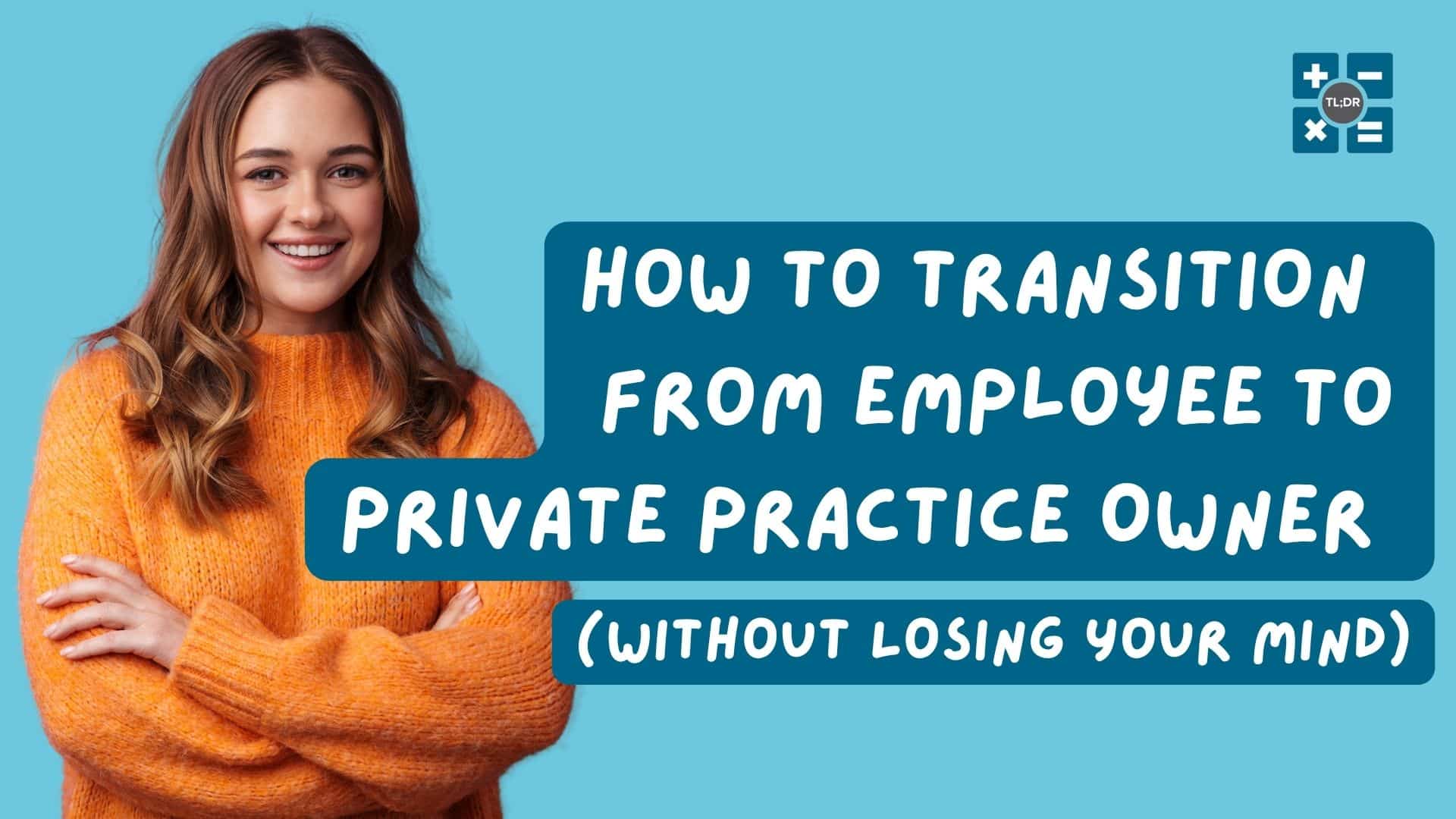“Life… uh… finds a way.”
~ Dr. Ian Malcom, Jurassic Park
You might say that life finds a way, or life gets in the way, or that “Life is what happens to you while you’re busy making other plans” (John Lennon). As accountants, we make it a habit to not get into stuff that’s not our business. On the other hand, your marital status, home ownership status, parental status, and the State you reside in can significantly affect your tax and business situation.
Without further ado, let’s get into some life situations and how it might affect your personal (or business) bottom line.
Did You Recently Get Married?

Marriage might make you think of love, fancy clothes, and an important ceremony, but we accountants also think of your tax filing status. Maybe you’ve filed Single for your whole life and never had to think about it, but next time you file taxes, you (and your spouse) have to agree to choose either Married Filing Jointly (MFJ) or Married Filing Separately (MFS).
We can tell you right now that there’s generally no benefit to filing separately (MFS) unless you and your spouse prefer it. Surely it’s better to file one tax return every year instead of two, right? Regardless, it’s up to you, and we can advise you on an individual basis if there would be any benefit to MFS.
Beyond tax considerations, it’s worthwhile to know how marriage affects the ownership of your personal assets and earnings. Washington State, like many western and southwestern states, is a Community Property state. Once you are married, all income you earn, property you acquire, and debt you incur can be considered community property. Community Property is exactly what it sounds like — it’s property of the “marital community,” as in, you and your spouse.
All of the property you “brought into” the marriage will likely be ruled as your individual property in a dispute (we can’t say for sure, because any disputes here would be up to the courts). If you had a house, a car, and a mortgage before the marriage, then these are the properties and debts you would likely have after a split. That said, if in doubt, you should consider signing a prenuptial contract (“prenup”) with your spouse to detail the property you are bringing into the marriage. Just know that when it comes to community property, Washington courts will generally disfavor prenups and instead do a 50/50 split.
Have You Recently Had a Divorce?
If you’ve recently had a divorce, we can help you with the financial implications for your unique situation. For this article, let’s cover a few important points:

- Your filing status changes from a married status (MFJ or MFS) to an unmarried status (Single or Head of Household) effective the year your divorce decree is finalized. If your decree is finalized in January 2021, then for your 2020 taxes you must still file using a Married status, even if you file your taxes in April as a divorced person.
- If you’re wondering what the difference is between Single and Head of Household, it has everything to do with whether you have dependents. If you have children, parents you care for, or another situation where you are providing substantial support for another person, you may be able to use the Head of Household filing status and receive significant tax advantages.
- After a divorce, any dependents that you and your spouse care for can only be claimed as a dependent by one taxpayer. If you and your spouse both want to claim the same child as a dependent, keep in mind that the “custodial parent” (the parent able to claim the child) is the parent with whom the dependent lived for more time during the year.
- Only the custodial parent of a child can claim the $2,000 Child Tax Credit for a child.
- Child support means payments from the non-custodial parent to the custodial parent, meant to help pay for the child’s living expenses. If your divorce agreement includes child support, it’s important to know that the payer does not get a tax deduction and the recipient receives the money tax-free.
- Alimony means payments from a higher-income spouse to a lower-income spouse, meant to help pay the recipient spouse’s living expenses. Alimony can be included in a divorce agreement whether or not the couple has children. The tax treatment of alimony is the opposite of the treatment for child support: the payer can deduct alimony payments from their taxes, and the recipient receives alimony as taxable income.
Did You Buy a House?
You may have heard about the “home office deduction” and information about the IRS having locked down on the requirements over the last few decades. This is all true! Let’s dig into the current requirements for the home office deduction.

The major provisions of the home office deduction include:
- The home office deduction is only available to people with business and/or self-employment income. If you only have employee (W-2) income, then you don’t qualify, unfortunately.
- You must have a specific area in your home that you use regularly and exclusively for work. So no, the kitchen table doesn’t work if you also eat there. Your bedroom doesn’t work because you sleep there, but you can reserve a section of your bedroom as a home office, because your “home office area” does not need to be walled-off.
- There are two ways to calculate the home-office deduction:
- The simplified method, which is indeed very simple, involves multiplying $5 by the number of square feet in your home office. While simple, this method caps at $1,500 for a 300 square foot office. This method will save you time.
- The standard method: Tally up every eligible expense involved with your house or apartment (mortgage, utilities, repairs and maintenance), and multiply the total amount by the percentage of your house that is your home office. As in, if your home office is 100 square feet and your house is 2,000 square feet then you multiply your expenses by 100 / 2,000 = 5%. You can also deduct a portion of property tax and there’s a provision for depreciation, but these calculations are more involved.
- If you’ve only worked from home for part of the year (you know, COVID and all), then you can prorate the simplified calculation by the number of months you used your home office. Again, this does not work if your income is W-2 employee income even though lots of employees worked from home in 2020. We’re aware of how much of a bummer this is.
Did You Sell a House?

If you sold a house, we have fantastic news for you. As long as you lived in the home for 2 of the last 5 years, then up to $250,000 of the gain from your home sale is completely tax-free. If you file MFJ, then you and your spouse can combine your tax exemptions to make $500,000 of tax-free gain. Please note the importance of the word gain here. Gain means your home’s sale price, less selling fees, less your home’s purchase price. If you sell your house for $1,000,000 and you bought it for $800,000, then your entire home sale gain is tax-free!
You can still use the tax exemption if your home sale gain exceeds the limits. For example, if you are single and enjoy a $300,000 gain on a home sale, then you only must pay capital gains tax on 300,000 – 250,000 = $50,000.
Unfortunately, while you can exclude home sale gains, you are unable to take a tax deduction on home sale losses.
Are You a Parent?

We know this is a personal question, but don’t worry: we’re not here to pass judgment on your decision to become (or not become) a parent. We’re just here to remind you to record your new child on your next tax return so you can save some money on taxes. You can use the proceeds to buy those diapers… or pay the nanny tax.
The nanny tax is very complex because it essentially puts you in the role of your nanny’s employer. Yes, the nanny tax (or more accurately, the set of nanny taxes) is the same as payroll taxes, and figuring out what to do can be challenging. Fortunately, we’re always here to help you set things up and abide by the tax code.
Did You Move to a Different State?
If you moved to a different state, then first off, congratulations! Moving is one of the most stressful things that almost everyone experiences at some point in their lives, so going through it is quite an accomplishment. Second off… we may have some bad news for you. If you moved for work or in order to find work, then you will no longer be able to claim the moving expense deduction on your taxes unless you’re a member of the Armed Forces. The Tax Cuts and Jobs Act (TCJA) all but eliminated the moving expense deduction for taxpayers.

A second item of bad news is that (if your business also moved to a new state) you will need to register your business in your new state (or foreign country if you moved country!). If you are an employer, you will probably also need to register in your new state for Unemployment Insurance as well as Worker’s Compensation. We’re specialists in Washington State taxes, but we may be able to help you or at least point you in the right direction in your new state.
Are You Starting a Business?
Starting your first business is likely the one life event that would affect your taxes more than any other event. If you’ve been a W-2 employee your whole life, chances are you haven’t had to pay estimated taxes before. Once your business starts making money, you have to start guessing how much you will owe in taxes after year-end, and you will be penalized for guessing wrong.

There is a “safe harbor” where you can make payments based on last year’s income and you are guaranteed to face no penalties, but if you’re having a bad year, this may not be an option.
Beyond estimated taxes, as a business owner you will be subject to state and local Business & Occupation (“B&O”) taxes. Your city may or may not have a B&O tax (Seattle does), but regardless of your city you will have to pay State B&O taxes. If you hire any employees, then there is a whole host of taxes and fees you must pay: Federal payroll taxes, state unemployment insurance, state worker’s compensation insurance (known in Washington State as “L&I”), and state and annual business license renewals.
Are You Closing a Business?
The IRS has a “handy” checklist for what to do when you close your business, but their wording isn’t always the easiest to follow. We’ll give you the short version:
Before Closing Your Business:

- Contact your financial and legal professional(s) to form a plan to close your business.
- If you have employees, it’s best to give them some advance notice that the business is closing. This will give them time to find another job so that they can continue to pay their bills.
- Try your absolute best to collect on every outstanding receivable you can. Offer discounts if you must. Failing that, you can sell (“factor”) your receivables to a collection agency as a last resort instead of just giving up.
- Unless you are declaring bankruptcy (which triggers special rules), put your best effort into paying your debts. Hopefully collecting your receivables will help in this endeavor. If necessary, request discounts from your vendors or come to some kind of agreement that leaves everyone satisfied, even partially.
- If you have any existing obligations to perform work for clients or customers, it’s a bad idea to stiff them at this point unless you want to risk legal trouble. Closing your business is not a “get out of jail free” card.
After Closing Your Business:
- In the year / quarter / month after you cease operations, make sure that you mark “Final” on many filings and forms, to indicate to local, state, and Federal agencies that they shouldn’t expect another return.
- Make sure to track and report any unexpected income your business makes after it “closes.” Perhaps a long-lost customer in arrears suddenly decides to pay up 3 months after you canceled your office lease. When in doubt about what to report, ask us!
- This may sound obvious, but make sure to pay all of your employees any amounts you owe them for their work.
- Sell what you can. You might be surprised at how many local businesses would be interested in your inventory, office supplies, or furniture. Sometimes it’s all about knowing where to look and who to ask!
Important note: These lists are for overview purposes and are by no means exhaustive. Seriously, contact your financial and legal professionals before you take any action regarding closing your business.
What Else Might Affect Your Taxes?
We have talked about some of the life changes that will have the biggest impact on your finances and taxes in this article, but there are many other life changes that will also affect your filings. It’s best to keep your tax professional up-to-date on the goings-on of your personal life in general; you might be surprised about what is relevant to the IRS.
That said, here’s a short list of personal decisions that probably won’t affect your taxes:
- You dye your hair
- You pick up a rock-climbing habit
- You fall into the latest bread-making craze
TL;DR: Major changes in your personal life can have major impacts on your taxes and business. If you are or will be married or divorced, be aware of how community property works. Buying a house (if you have self-employment income) can save you money through the home office deduction, and you can exclude all or a portion of home sale income. If you have kid(s), nanny taxes may unfortunately complicate your tax situation significantly. Last, if you’ve moved, opened, or closed a business, then you need to notify the relevant government agencies. Have another question? You can reach out to the team any time, here.






